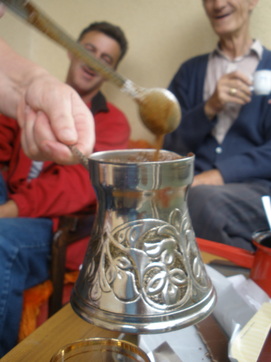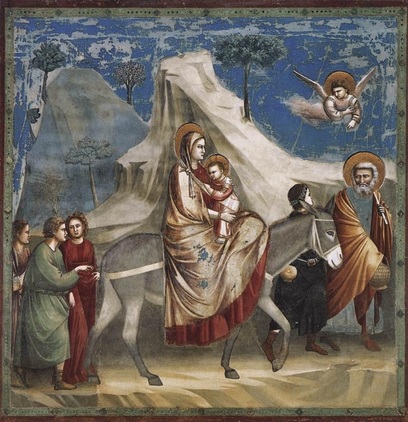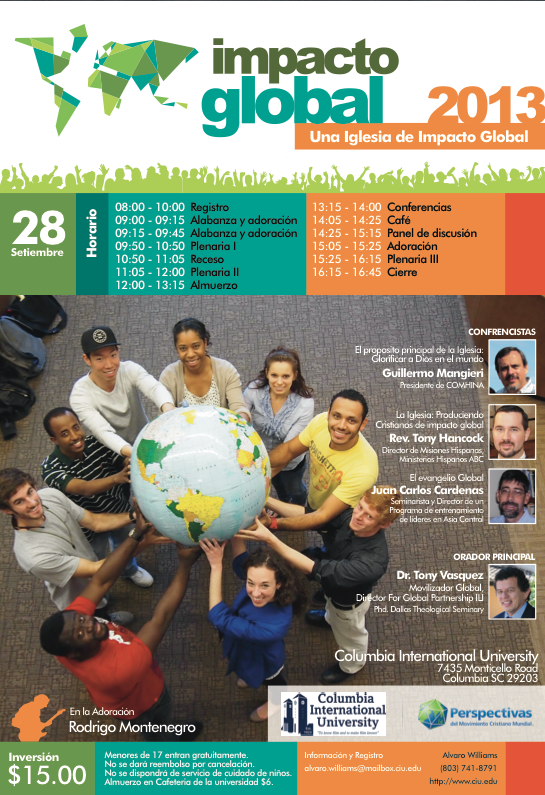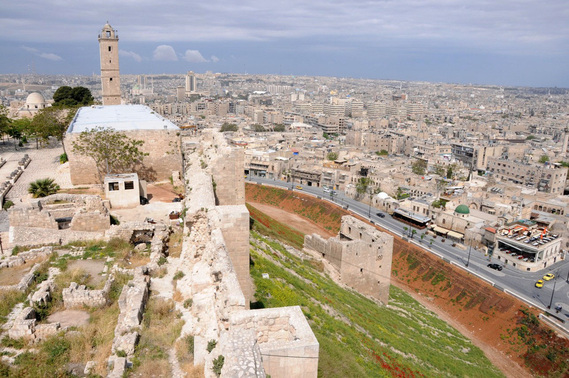posts
|
The Southeast Regional meeting of the Evangelical Missiological Society will meet at Columbia International University March 28-29. This year's topic will be on the theme of "Diaspora Missiology." If you are a member of EMS and would like to propose a paper, send a topic and 200-300 word abstract to Ed Smither ([email protected]) by January 30, 2014. Off topic papers will also be considered. You may join EMS or renew your membership HERE.
The complete call for papers reads: It is widely evident that globalization, economic and security needs and other dynamics have driven increased internal migration in some countries and international migration among of others. Increasingly, mission agencies, individual gospel workers and churches in receiving countries wonder how best to respond to these diasporas where significant numbers of a nation or people, move from their homelands to areas of greater opportunity or security. Diaspora Missiology seeks to integrate biblical and theological insights with those of the social sciences to help understand and respond to this phenomenon. You may choose a topic from the list below to make your contributions by seeking to: 1. Develop biblical and theological dimensions (“why”) of diaspora missiology; 2. Illustrate the “how” of “missions to, through, by/beyond the diaspora” historically and practically OR conduct a case study; 3. Apply missionary methods to diaspora missions and missiological research to diaspora missiology; 4. Strategize diaspora missions in terms of urban mission, contextualization, globalization, partnership; 5. Propose ways and means to integrate diaspora missiology with church planting, pastoral ministry, theological education, and Christian counseling; 6. Offer new direction for the practice of diaspora missions OR suggestion for future research in diaspora missiology; 7. Review relevant literature of diaspora missiology (OR related disciplines) and derive missiological implications; 8. Appraise current theory, methodology and practice of diaspora missiology and provide correctives/solutions. This week's annual Evangelical Missiological Society's annual meeting (meeting in concert with MissioNexus) was dedicated to the topic of the missionary family. Among the fine papers was one given by Andrew McFarland--a historic look at William Carey and his vision of the missionary family-- and I had the privilege to offer a brief response. McFarland's paper, which stems from his PhD studies on William Carey at Asbury Theological Seminary, will be published as a chapter in next year's EMS monograph. Here is a taste of his paper:
As William Carey, his family, his wife’s sister Kitty, and fellow missionary John Thomas left the shores of England in 1793, bound for India, he could declare he had counted the cost. He knew well the dangers that awaited them at sea and in the unforgiving climate of India. Moreover, he knew the whole missionary venture would have to remain covert as mission work in India had been declared illegal. But Carey could not have anticipated the overwhelming sense of loss he would feel watching his missionary efforts suffer from the conduct of his own family members. From the unbridled violence of his wife to the wayward living of his children, he experienced his share of family struggles. At times, this caused him to sink into deep depression. As we shall see, in spite of failure, disappointment, and numerous domestic catastrophes, Carey’s dogged commitment to the creation of a ‘mission family’ not only rescued the mission, it rescued his own family as well. Their commitment to labor together in the work of the mission became the impetus for pooling their resources and sharing the task of raising children. While this arrangement was not a panacea for the dangers of raising missionary children, it provided the unity, community and support his family needed most.  This week I am presenting in the Short-term Mission track at the North American Mission Leaders Conference in Dallas on the topic "How Short-Term Missions Can Strengthen Long-Term Work." Originally published as an article in the October 2012 edition of Evangelical Missions Quarterly, below is a taste of what I'll present: As the day ended, I was never more grateful to see my bed and crawl into it. I had aching feet from the miles walked that day, a sore back from carrying 50lb bags of flour up several flights of stairs, and stinging eyes and smoke filled clothes from the cigarette smoke encountered from the day’s visits. Craving sleep, I was still a bit wired from all the Turkish coffee consumed during the day. It was Spring break and I was serving with thirteen college students on a short-term missions trip among a Muslim people group in Eastern Europe. Our days were filled with delivering food packets to poor and needy families, visiting with them (and drinking lots of coffee) in their homes, helping with conversational English in a few schools, putting on a health fair at another school, hanging out in the evenings in smoky cafes with new friends, and spending time over meals with our local host families. In all of this, we served alongside a long-term team and our daily ministry was carefully dictated by their long-term vision and strategy for planting churches and making disciples in the region. Short-term missions (STMs), particularly from the United States, is a huge enterprise filled with the courageous stories of humble servants but also the fun experiences of adventure seekers (Priest 2008:i-iv; Moreau 2008:11-20; Livermore 2006:43-108). The STM phenomenon certainly raises important questions about motivations for ministry as well as Christian stewardship. One of our biggest questions [should be] how does short-term work relate to long-term ministry? That is, how can a STM team helpfully contribute to long-term work, and how do we help short-termers become long-termers? One of my students at CIU, Alvaro Williams, writes about this great opportunity in which he is serving as coordinator:
“Impacto Global” or “Global Impact,” organized by CIU, will be held in Shortess Chapel Saturday, September 28th. The conference seeks to bless the Hispanic Church through excellent and relevant Biblical teaching. This event strives to gather the many Hispanic congregations in the state of South Carolina, to foster a sense of community among them and to encourage them to participate in the global cause of God. This year’s theme for the conference is “A Global Impact Church.” We believe that the Hispanic Church is often unaware of their key role in the Great Commission. There are over 7,000 unreached people groups in the world today, many of which Americans have limited access to. However, the Hispanic World is welcomed by many of these groups and has an easy point of entry. The heart behind this conference theme is to produce “Global Christians.” Prayerfully God will do a great work, igniting a passion in hearts of the attendees to actively participate in the mission of God, desiring Christ’s name to be exalted and known among the unreached. The conference, conducted in Spanish, will last only one day. There will be three plenary sessions, workshops and a panel discussion. The speakers have had overseas experience or are in some way involved with training or equipping leaders for the mission field. For more information about the conference such as the schedule, session themes or registration, please visit the following website: http://impactoglobal.eventbrite.com One of the great joys of facilitating learning in intercultural studies at CIU is to see quality research carried out in the form of MA theses. Randy Hacker, who has been serving in Poland for 14 years recently completed his thesis entitled, "North American Mission Agencies in Poland: A Study in 'Partnership.'" While the entire thesis can be downloaded HERE, Randy summarizes his aims in the abstract:
This thesis explores relationships between North American missionaries and Polish churches in Poland. The research draws from published descriptions of Polish church history and missionary accounts to build a preliminary picture of partnership. Online surveys of missionaries and Polish church leaders, as well as interviews of church leaders, form the foundation for the assessment of partner relations in Poland. Best practices in partnership documents are assessed, as are Polish and North American perspectives on the state of missionary/church relations in Poland. The research demonstrates several patterns and barriers in partnership, and the thesis concludes with recommendations for missionaries and Polish church leaders. To get a further sense of his findings, Randy concludes: Most missionaries to Poland and indigenous Christian leaders agree that Poland is a very difficult place to minister, a place where results do not come quickly, where spiritual immaturity seems to be the rule, where discouragement becomes a common trap for servants. Unfortunately, the task becomes even more difficult when we are unable to work together. I was heartened to hear from Polish leaders that in most cases, partnership with Western missionaries had been a significant source of encouragement. Missionaries and Polish leaders alike identified a number of barriers, but identifying these problems is the first step toward eliminating them. With God’s help, and humility from both sides, we can make our partnerships even better than before. As we do so, perhaps our example will be copied by the rest of the Church, and Poland will become a place of spiritual harvest and maturity, a place of encouragement, and a place that sends effective missionaries to other countries. After two years of civil war, the Syrian crisis is now in the news--especially the western media--more than ever before. The Syrian government's apparent recent actions of using chemical weapons against civilians has rightfully sparked concern from the West. As intervention, war, and peacemaking are being debated, it seems helpful to consider the perspective of Syria's Christian population. Despite being the minority religion in a majority Muslim context, the church in Syria is one of the oldest Christianity communities in the global church. Works by Kenneth Cragg, Samuel Moffett, Dale Irvin and Scott Sunquist, and Phillip Jenkins have helpfully related the story of early eastern Christianity.
In an article this past week in the National Catholic Reporter, some strong perspectives from Syrian Christians were communicated. This included the opinion of church leaders who argued that Arab trust in the West would only be weakened by intervention: In late August, the Melkite Greek Catholic patriarch of Antioch in Syria, Gregory III Laham, pointedly asserted that any military intervention by the United States in his country would be a "criminal act." Such an assault, Laham said, "will only reap more victims, in addition to the tens of thousands of these two years of war. This will destroy the Arab world's trust in the West." He warned it would be no less serious than the use of chemical weapons. There is also concern that removing the Assad regime would only mean more violence toward Christians. The report continues: Since the outbreak of civil war in 2011, reports suggest Christians have been the targets of mounting violence. Observers believe tens of thousands of Christians have fled the conflict zones, some going into internal exile and others seeking refuge in neighboring countries such as Lebanon, Jordan, Turkey and Armenia. The Syriac League, a nonpartisan body in Lebanon, estimated in May that there are 10,000 Christian refugees from Syria in that nation alone . . . In addition to physical attacks, reports indicate churches and meeting places have been torched, Christian-owned businesses have been looted, and in some cases, Christian women have been targeted for assault. The Christian Post reported in December 2011 that fundamentalist taxi drivers in rebel-controlled areas of Syria had vowed to attack any unveiled female client, who tend to be Christians. Christian clergy have also become tempting targets for kidnapping, including two Orthodox prelates grabbed by still-obscure forces in April. The prelates' fate remains unknown. In late February, the website Ora Pro Siria, operated by Italian missionaries in Syria, claimed the going price for a kidnapped priest was in the neighborhood of $200,000. As a result, many Syrian Chrisitians "seem to prefer the devil [the current government] they know." The article concludes: Aid to the Church in Need, a Catholic humanitarian group, recently issued a report on Syria, quoting one Christian woman who asked to remain anonymous. "The government was bad, but at least we were safe," she said. "Not anymore. ... Look at what has happened to our churches in places like Aleppo and Homs. The extremists threaten us when we want to celebrate major feasts like Christmas and Easter. They don't want us in the area at all." These concerns have certainly been validated by recent escalated violence in Egypt toward its Christian minorities. Let us not forget to pray for these ancient communities and their current witness in Syria as we also pray for peace in Syria and wisdom for world leaders and governments as they consider their response to the Syrian situation. |
Archives
November 2023
|






 RSS Feed
RSS Feed
